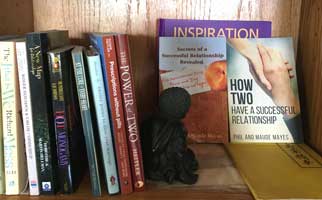Successful Relationship Reading Corner
 In this week's blog, we discussed core values, the third of a triumvirate of factors that bond people together. Here are three articles that discuss this from very different points of view. In this week's blog, we discussed core values, the third of a triumvirate of factors that bond people together. Here are three articles that discuss this from very different points of view.
Why Is Recognizing Needs and Values Important in Relationships? "Needs and values — the things we care about, the sources of our wants — matter because they are the contents of our core selves. They make up much of the terrain of our inner worlds.... Needs and values are indeed highly interconnected. There will be times, in your process of gaining deeper understanding of another person, when it won’t be important to distinguish whether you’re exploring a need or a value. But there is an important distinction between the two: needs tend to be very similar for all people, whereas values tend to be highly individualized."
Shared Values Over Shared Interests: What’s Most Important in Relationships "... While I share that story to reveal that there are indeed, instances where opposites are attracted to each other, it’s important to also note that while individual interests might vary, for a relationship to last for the long-term, there have to be mutual, shared values. That means that one partner might love swing dancing, chick flicks and staying up late, while the other prefers action movies, watching baseball and going to bed early. Still, they should agree on the “big” stuff in life, like their future plans for children, where they want to live, and what they ultimately want."
Are Relationships Workable When You Have Clashing Values? "I remember a few years ago I was in a relationship with a woman whom I loved deeply. The passion and feelings were there. They were strong. Yet, the relationship never felt right. In terms of our values, we were mismatched. While my heart was in it, my head was trying to pull me away. Our emotional connection was fierce, but we did not connect in some of the crucial areas of alignment."
|
|